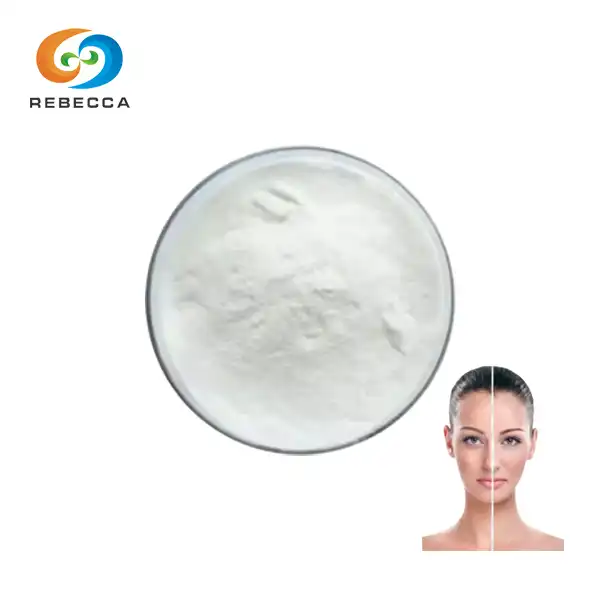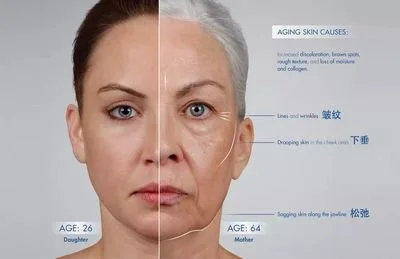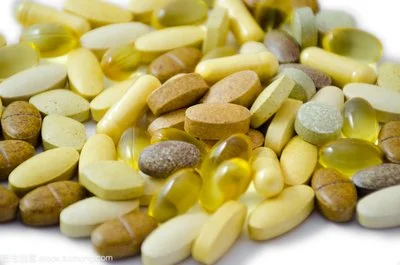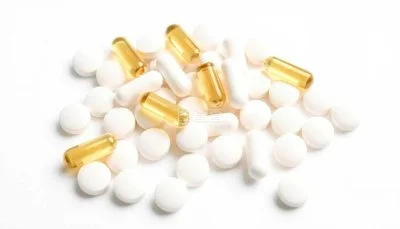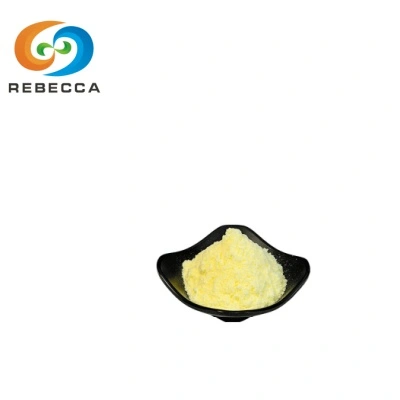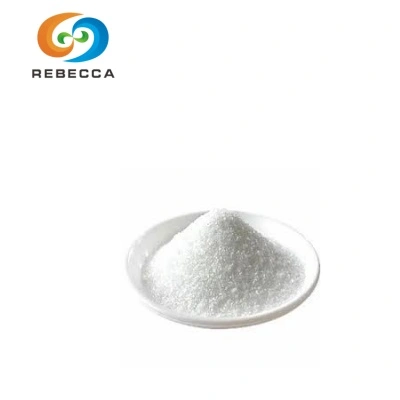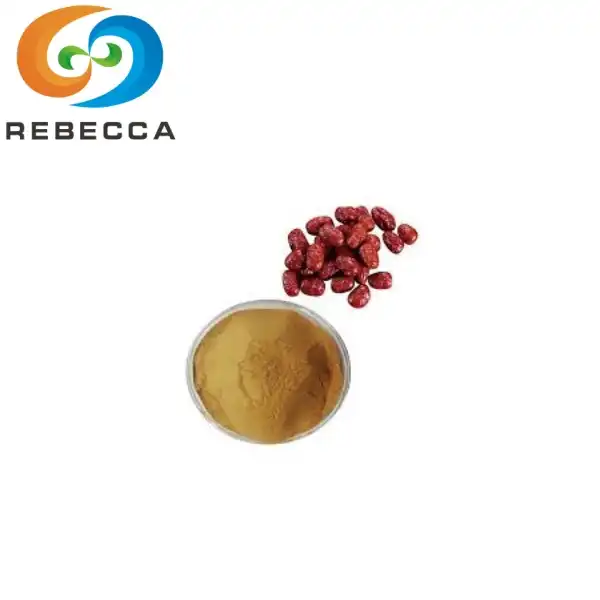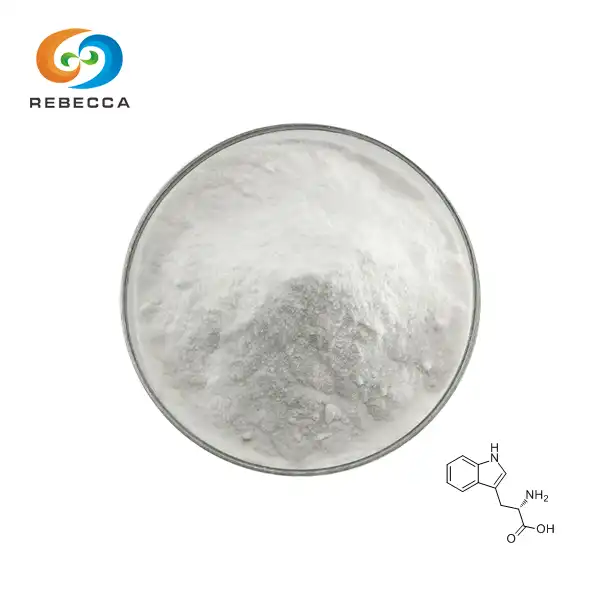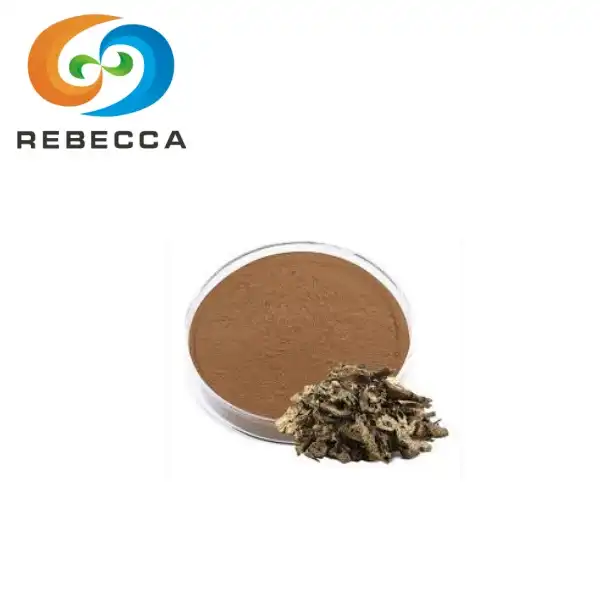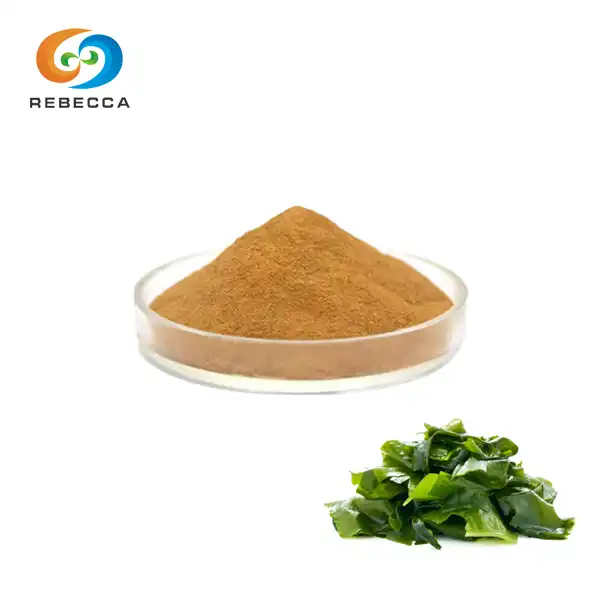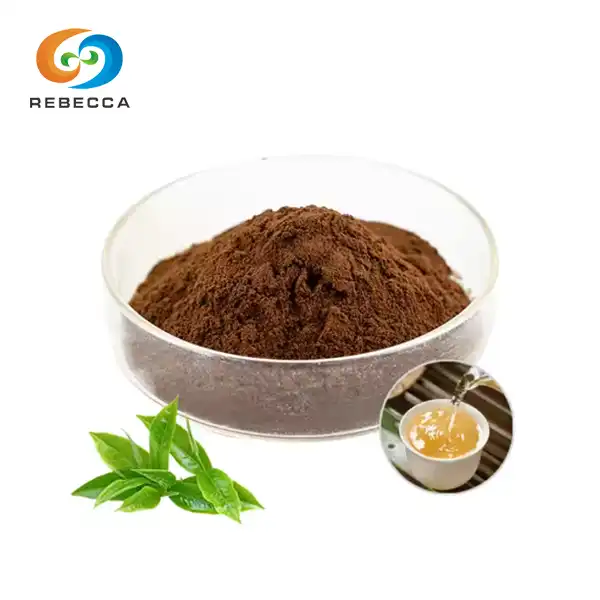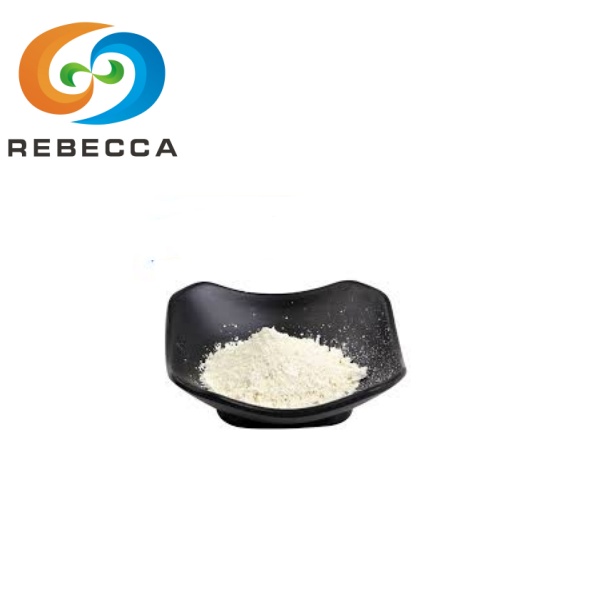Glutathione powder benefits for skin and health
Glutathione powder is a versatile supplement that offers a wide range of benefits for both skin health and overall well-being. Let's delve into some of the key advantages:
Skin health benefits
Glutathione powder has gained popularity in the skincare industry due to its potential to enhance skin appearance and health:
- Skin brightening: Glutathione may inhibit melanin production, leading to a more even skin tone and reduced hyperpigmentation.
- Anti-aging properties: As a potent antioxidant, glutathione helps protect skin cells from oxidative stress, potentially reducing the appearance of fine lines and wrinkles.
- Acne management: Some studies suggest that glutathione may help regulate sebum production and reduce inflammation, potentially benefiting those with acne-prone skin.
- UV protection: Glutathione may offer some protection against UV-induced skin damage when used in conjunction with sunscreen.
Overall health benefits
Beyond its skin-enhancing properties, glutathione powder offers numerous health benefits:
- Detoxification support: Glutathione plays a crucial role in the body's detoxification processes, helping to neutralize and eliminate harmful toxins and free radicals.
- Immune system boost: By supporting the function of immune cells, glutathione may help strengthen the body's natural defenses against illness and disease.
- Liver health: Glutathione is essential for liver function and may help protect liver cells from damage caused by alcohol and other toxins.
- Athletic performance: Some athletes use glutathione supplements to reduce muscle damage and improve recovery after intense exercise.
- Neurological health: Research suggests that maintaining optimal glutathione levels may support brain health and potentially reduce the risk of neurodegenerative disorders.
Glutathione reduced vs powder: key differences
While both glutathione powder and reduced glutathione offer similar benefits, there are some key differences to consider:
Chemical structure and stability
Glutathione powder typically refers to the oxidized form of glutathione (GSSG), while reduced glutathione (GSH) is the active, antioxidant form. The main differences in their chemical structure include:
- Reduced glutathione (GSH) has a free thiol group, which is responsible for its antioxidant properties.
- Oxidized glutathione (GSSG) consists of two glutathione molecules linked by a disulfide bond.
- Reduced glutathione is generally less stable than the oxidized form, making it more challenging to store and transport.
Absorption and bioavailability
The effectiveness of glutathione supplementation largely depends on its absorption and bioavailability:
- Reduced glutathione may be more readily absorbed by the body, as it's already in its active form.
- Glutathione powder (oxidized form) needs to be converted to the reduced form by the body before it can exert its antioxidant effects.
- Some studies suggest that liposomal or acetylated forms of glutathione may have improved bioavailability compared to standard oral supplements.
Intended use and applications
The choice between glutathione powder and reduced glutathione often depends on the intended use:
- Glutathione powder is often used in cosmetic formulations due to its stability and ease of incorporation into various products.
- Reduced glutathione is commonly used in intravenous treatments and some oral supplements, particularly those focused on rapid absorption.
- Both forms can be found in dietary supplements, with manufacturers often using specific technologies to enhance stability and absorption.

How to choose the right form of glutathione powder?
Selecting the appropriate form of glutathione depends on various factors. Consider the following when making your choice:
Personal health goals
Your specific health objectives will influence the type of glutathione supplement you choose:
- Skin health: For topical applications, glutathione powder may be more suitable due to its stability in cosmetic formulations.
- Systemic health benefits: Reduced glutathione or specialized formulations designed for improved absorption may be more effective for internal use.
- Targeted therapies: Consult with a healthcare professional to determine the most appropriate form for specific health conditions.
Method of administration
The way you plan to take glutathione can impact your choice:
- Oral supplements: Both forms are available as oral supplements, but reduced glutathione or specially formulated versions may offer better absorption.
- Topical applications: Glutathione powder is often preferred for skincare products due to its stability.
- Intravenous or intramuscular injections: These typically use reduced glutathione for immediate bioavailability.
Quality and purity considerations
Regardless of the form you choose, it's crucial to prioritize quality and purity:
- Look for products from reputable manufacturers with third-party testing and quality certifications.
- Check for additives, fillers, or potential allergens that may affect the product's efficacy or your health.
- Consider the source of the glutathione, with some preferring naturally derived options over synthetic versions.
Consultation with healthcare professionals
Before starting any new supplement regimen, it's advisable to consult with a healthcare professional:
- Discuss your health goals and any existing medical conditions to determine the most appropriate form and dosage of glutathione.
- Consider potential interactions with medications or other supplements you may be taking.
- Evaluate the need for glutathione supplementation based on your individual health status and lifestyle factors.
Conclusion
Glutathione powder and reduced glutathione offer potent antioxidant benefits for skin health and overall well-being. While they share similar properties, their differences in chemical structure, stability, and bioavailability can impact their effectiveness for various applications. By understanding these distinctions and considering your personal health goals, you can make an informed decision about which form of glutathione is right for you. Remember to prioritize quality and consult with healthcare professionals to maximize the benefits of glutathione supplementation.
At Shaanxi Rebecca Biotechnology Co., Ltd., we specialize in producing high-quality glutathione powder using advanced technologies like high-temperature drying and ultra-fine grinding. Our Top-Rated Glutathione Powder is crafted to preserve the raw materials' nutritional value, ensuring maximum effectiveness for various applications. Whether you're in pharmaceuticals, cosmetics, or nutritional supplements, our product meets the highest standards of purity and quality. To learn more about our glutathione powder and other natural herbal extracts, please contact us at information@sxrebecca.com.
FAQ
Is glutathione powder safe for long-term use?
Generally, glutathione powder is considered safe for long-term use when taken as directed. However, it's always best to consult with a healthcare professional before starting any new supplement regimen.
Can glutathione powder help with skin whitening?
Some studies suggest that glutathione may have skin-lightening effects by inhibiting melanin production. However, results can vary, and it's important to use such products under professional guidance.
How should I store glutathione powder?
Store glutathione powder in a cool, dry place away from direct sunlight. Our product has a shelf life of 2 years when stored properly.
What's the recommended dosage for glutathione powder?
Dosage can vary depending on individual needs and the specific product. Always follow the manufacturer's instructions or consult with a healthcare provider for personalized advice.
References
1. Pizzorno, J. (2014). Glutathione! Integrative Medicine: A Clinician's Journal, 13(1), 8-12.
2. Sonthalia, S., Daulatabad, D., & Sarkar, R. (2016). Glutathione as a skin whitening agent: Facts, myths, evidence and controversies. Indian Journal of Dermatology, Venereology, and Leprology, 82(3), 262-272.
3. Kern, J. K., Geier, D. A., Adams, J. B., Garver, C. R., Audhya, T., & Geier, M. R. (2011). A clinical trial of glutathione supplementation in autism spectrum disorders. Medical Science Monitor, 17(12), CR677-CR682.
4. Sinha, R., Sinha, I., Calcagnotto, A., Trushin, N., Haley, J. S., Schell, T. D., & Richie Jr, J. P. (2018). Oral supplementation with liposomal glutathione elevates body stores of glutathione and markers of immune function. European Journal of Clinical Nutrition, 72(1), 105-111.
5. Allen, J., & Bradley, R. D. (2011). Effects of oral glutathione supplementation on systemic oxidative stress biomarkers in human volunteers. Journal of Alternative and Complementary Medicine, 17(9), 827-833.
_1730691017423.webp)




